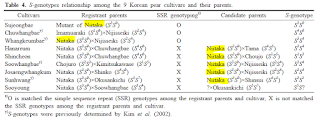The good news is that I was able to run 4.5 miles yesterday in 53 minutes. I would love to get down to 10 minute miles but just being able to crank out 4.5 miles (with an additional half-mile walk-down) was thrilling.
In other good news, I found a neighbor who is willing to take the steer to the slaughter house and is interested in keeping the two heifers for breeding stock. He is even willing to coordinate with the butcher-shop so I don't have to get in the middle of playing "telephone". Life just got much, much better for me.
The bad news is that the ticks were active with our unseasonably warm weather. That will come to a screeching halt tomorrow.
"...empty, swept clean and put in order..."
“When an unclean spirit goes out of a person it roams through arid regions searching for rest but finds none. Then
it says, ‘I will return to my home from which I came.’ But upon
returning, it finds it empty, swept clean, and put in order.
Then
it goes and brings back with itself seven other spirits more evil than
itself, and they move in and dwell there; and the last condition of that
person is worse than the first. Thus it will be with this evil
generation.” Matt 12:43-45
I chose to write about this passage because I think it might contain practical tips for dealing with the demons of our times.
This passage is ambiguous and can be read many different ways. Depending upon the way it is read, it will lead the modern reader into very different places. Consequently, most people studying this passage skim over it and put it aside for later study.
The reason the passage is ambiguous is because the author assumes that the reader has access to context that was obvious to those who were listening at the time and was probably ubiquitous to the time-and-place when Jesus said those words. Where I need to tippy-toe is that I will be speculating with regard to what cannot be known with certainty. What follows in this post is speculation about particulars that are not key matters of faith. If that bothers you, please stop reading.
Mental Health
It seems probable to me that "...demons..." were frequently referenced when describing why people with major, mental-illnesses behaved the way they did.
Even today, "...demons..." is about as useful of an explanation for some illnesses as what modern medical science offers: Bipolar, Multiple personality disorders, Psychosis (hearing voices) and so on.
Mental illnesses are perplexing to treat because one dysfunction seems to trigger other dysfunctions in a cascading avalanche of failures. ADHD triggers Anxiety which triggers Depression which triggers Oppositional defiance disorder which triggers Bipolar which...
People living in Biblical times would be keenly aware of the other people living in their village. Economically (as in calories/day) the vast majority of people were living on the knife's edge of just-enough and any neighbor who became possessed by demons represented a major threat to their economic lifeboat. Remember, one impulsive emotion-triggered thrust of a burning stick could burn down the entire village or destroy a ripe field of grain.
Standard of Care for mental illness, circa Year Twenty-five Common Era
I believe that the lost bit of ubiquitous information is that the cleaning of the house and putting in order was the "Standard of Care" for mental illness in the Biblical era.
Seen through the lens of what we think we know about mental-illness, it is not a bad strategy.
Simple, repetitive tasks like sweeping or counting or reciting the multiplication tables act as a metronome and slows the rapid-fire, staccato, over-revving mind and anxieties. Marsha Linehan called this "getting into 'wise-mind'".
The tangible act of sorting the important from that-which-should-be-discarded is a physical analog of what needs to be done mentally and emotionally. Frankly, how much mental illness is triggered or worsened by toxic, legacy relationships that should have been discarded decades ago or by items that trigger guilt that is impossible to resolve (at this point)?
The cleaning-and-sorting process is also therapeutic because two objects cannot occupy the same space on the shelf. Likewise, two objectives cannot share the same priority. One cannot have one's cake and eat it at the same time. Human minds lock-up when the owner of the cake cannot decide which priority is more important. The act of cleaning informs us that we have to pick ONE item to put on the shelf. We can live with it for a while. We can change our minds at a later time. But to clean the room we have to make a decision NOW.
But what about the seven other demons, more evil than the first?
Even with modern therapies and modern drugs, treatments for mental illness do not always work.
I think the "seven demons more evil than itself" is a description of the cascading avalanche described a few paragraphs earlier.
At the level of society?
The strategies might be scalable to address the craziness we see in the streets of our nation.
Water cannons can be used instead of brooms. Those who attack the people cleaning the streets are not bulletproof. Access to entitlements should be swiftly denied to those who fail to behave in civilized ways. If they have children, the children should be placed in homes where the adults are civilized and the entitlements should follow the children.
If the people who are violent in the streets work in the public sector, they should be summarily fired. If they cannot be fired due to contractual reasons, then funding from the state and federal levels should be removed to the extent of 2X that persons gross cost of employment.
The difference between the village in the time of Christ and the cities of today is that it would take lot longer to rebuild the cities of today and the body count would be much, much higher.
If men of good character do not step-up then the demons will prevail. Fixing this is not difficult. Discarding toxic beliefs and fuzzy, feel-good theories that we cherish is what is difficult.









































